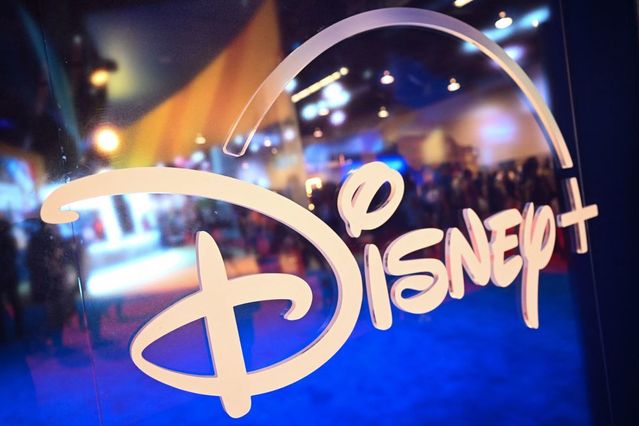
The ESPN tie-up with Penn Entertainment raises some critical questions for owner Disney.
Patrick T. Fallon/AFP via Getty Images
Disney opened higher Wednesday ahead of the media giant’s earnings later in the day, and for that investors can look to the gambling tie-up just struck between ESPN, which it owns, and Penn Entertainment. But hold on, the deal may not be as good as it looks.
Disney ’s (ticker: DIS) ESPN has sold exclusive rights to the “ESPN Bet” trademark to Penn
(PENN) for 10 years for $1.5 billion in cash and $500 million worth of Penn warrants. The deal gives Penn media, marketing, and brand rights to ESPN, including promotion across the group’s platforms and access to its talent.
Shares in Penn—which Lightshed analyst Richard Greenfield calls “a second/third-tier sportsbook”—were up more than 15% Wednesday. Investors understandably cheered its access to the premier U.S. sports media brand, even though it came at the cost of essentially giving away its ownership of Barstool Sports, which is going back to founder Dave Portnoy. That might tell you all you need to know about the balance of the deal, and why Disney stock’s 1% early advance might not last long.
The whole deal sort of reeks for Disney. At least, that’s the key takeaway from a note put out by Greenfield at Lightshed on Wednesday.
Penn gaming may have been ESPN’s partner of last resort, he said. Under former CEO Bob Chapek, Disney was floating a $3 billion, 10-year licensing deal with gambling companies, Greenfield added, and sportsbooks firmly believed this was overvalued.
“All the major sportsbook[s] appear to have passed, with only Penn willing to cut ESPN a large, albeit far less than originally desired, annual licensing check for the ESPN brand,” Greenfield said, which underscores the ESPN’s growing profitability hole stemming from rising programming costs and revenue pressures.
It all begs the question of what Disney’s plan is for ESPN.
“Everything about Disney is premium quality. Penn is not a market leader in sports betting and nobody believes their technology is good enough to compete with the industry leaders,” Greenfield said.
Now, with ESPN’s 10-year marriage to Penn, Disney’s strategic options for the sports media group are limited. No longer can it merge ESPN with Flutter ’s (FLTR.U.K.) FanDuel or DraftKings
(DKNG), which many investors had hoped for, Greenfield said.
Nor does it make finding investors for ESPN, which CEO Bob Iger flagged last month, any easier. As Greenfield asks: “Why would sports leagues or distribution platforms (like Verizon (VZ) or T-Mobile (TMUS)) that might have been interested in investing in ESPN want to be associated with a sports betting platform that is not best-in-class?”
There are more questions without answers, too, including why Disney would sell ESPN to a group that is not licensed anywhere where the parent company or the sports group have a major presence, Greenfield notes. Penn is not licensed in ESPN’s home state of Connecticut, nor New York, and sports betting remains illegal in Florida and California. “It feels a bit strange,” the Lightshed analyst said.
Unfortunately, Greenfield’s best guess as to why the Penn deal was announced now bodes even worse for Disney investors in the short-term than the ESPN deal does in the long-term.
“Disney is reporting earnings this afternoon and investors are expecting weak results and a lowering of go-forward expectations given Iger’s recent commentary on the challenges facing Disney being greater than he expected,” the analyst said. “We suspect Disney wanted something new to divert investor attention away from their near-term struggles.”
Investors only have to wait hours now until Disney earnings to find out.
Write to Jack Denton at [email protected]